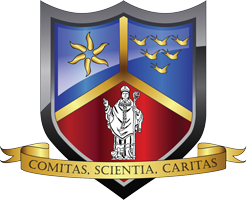PSHEe
What is PSHEe?
Personal, Social, Health and Economic (PSHE) education (PSHEe) is a comprehensive programme of learning through which children and young people acquire the knowledge, understanding and skills they need to manage their lives now and in the future. It aims to keep children and young people ‘Happy, Healthy and Safe’. As part of a whole school approach, PSHEe develops the qualities and attributes pupils need to thrive as individuals, family members and members of society.
Why is PSHEe important to our school?
PSHE education helps us fulfil our statutory responsibilities. All schools are required to teach a curriculum that is “broadly based, balanced and meets the needs of pupils”. Schools must “promote the spiritual, moral, cultural, mental and physical development of pupils at the school and of society, and prepare pupils at the school for the opportunities, responsibilities and experiences of later life” while having a duty to keep pupils safe.
A growing body of research shows that pupils who are emotionally healthy do better at school. PSHE education helps children and young people to achieve their potential by supporting their wellbeing and tackling issues that can affect their ability to learn, such as anxiety and unhealthy relationships. PSHE education also helps pupils to develop skills and aptitudes – like teamwork, communication, and resilience – that are crucial to navigating the challenges and opportunities of the modern world, and are increasingly valued by employers.
What does PSHEe look like?
In planning our PSHE curriculum we consider the needs of our pupils, the aims and ethos of the school, the local community and local environment in which the school is situated. This helps us to tailor our programme to our pupils’ needs and our school’s circumstances. A major part of PSHE, i.e.Health Education and Relationships & Sex Education (RSE), has become compulsary in all secondary schools. Our school prides itself on delivering effective, age-appropriate relationships and sex education to meet the needs of all our pupils within an inclusive and supportive learning environment using nonbiased resources. We are committed to preparing your child to live and learn safely in the modern world, negotiating the transition into increasing independence with the development of knowledge, values and skills to make positive, healthy and safe choices.
We deliver a ‘spiral’ curriculum that enables pupils to build on their prior learning by re-visiting some themes to further develop knowledge, values and skills in an age and stage-appropriate manner. As such some themes are repeated to enable a deeper exploration of the related issues.
Resources are drawn from reputable sources such as the PSHE Association lessons, Educator Solutions, CEOP, Rise Above and resources that have gained the PSHE Association Quality Mark.
What does PSHEe include?
Our PSHEe curriculum is a ‘spiral’ curriculum which provides age appropriate opportunities for pupils to learn about:MHEW: Although some units are targeted to focus on issues of body image, influence of media, assertiveness, coping strategies etc. the topic ‘Mental Health and Emotional Wellbeing’ underpins the curriculum as a whole and is conspicuously included in most topics.
Relationship & Sex Education and Health:
Relationships: developing and maintaining respectful relationships (friendships (including online), family relationships, intimate and sexual relationships (including LGBTQ and contraception)); dealing with negative relationships (bullying, abuse, exploitation, FGM and sexual violence (including online))
Health: healthy lifestyles (including sleep, dental health, sexual health (including STIs), healthy eating and exercise (including yoga)); healthy and unhealthy coping strategies; drug, alcohol and tobacco education; puberty, human papillomavirus (HPV) vaccination and teenage cancer.
Living in the wider world:
Personal finance: your money matters: savings, debt and budgeting.
Risk & Safety: financial and career choices; personal safety (including exploitation, gambling, weapons and gangs and mental health); Safety online, County Lines and First Aid. (All linked to DFE Keeping Children Safe in Education Sept 2020 requirements.)
Careers: choices, paths, CV, work experience.
Change: managing transition, puberty and character education
British Values & Citizenship: Democracy, Equality, Racism & Prejudice (Black Lives Matter), United Nations, Human Rights and Responsibilities, Extremism, Identity and Diversity
Revision techniques
Overview of our PSHEe Curriculum
https://docs.google.com/spreadsheets/d/1ddGipm8vLJ7lsyaMpaUOlMnDQDASFS4WcgH3WPdrCX8/edit?usp=sharing
Why is PSHEe important for pupils?
Personal, Social, Health and Economic (PSHE) education is a school subject through which pupils develop the knowledge, skills and attributes they need to manage their lives, now and in the future.
These skills and attributes help pupils to stay healthy, safe and prepare them for life and work in modern Britain. PSHE education helps pupils to achieve their academic potential, and leave school equipped with skills they will need throughout later life.
PSHE education helps pupils to develop the knowledge, skills and attributes they need to thrive as individuals, family members and members of society. From making responsible decisions about alcohol to succeeding in their first job, PSHE education helps pupils to manage many of the most critical opportunities, challenges and responsibilities they will face growing up. It also enables children and young people to reflect on their own values and attitudes, and explore the many complex and conflicting values and attitudes they encounter elsewhere.
Pupils agree that PSHE education is a vital part of their preparation for life.
Who teaches PSHEe?
At St Richard’s, we believe that the best people to teach our pupils PSHEe are their tutors who understand their pastoral needs the most. PSHEe is therefore taught in tutor groups by form tutors.
All pupils are taught PSHEe during one lesson each week. Our schemes of work and lessons are varied in the manner of delivery and linked activities. Lessons are enhanced with regular outside speakers. Each year group follows a set PSHEe programme managed by the Subject Leader for PSHEe, Ms Vanvuchelen, and the pastoral leaders. However, tutors are encouraged to consider their tutees’ needs and be flexible in their choices of activities and sometimes topics.
What do we hope to achieve?
Our aim is for every child and young person in our care to be ‘Happy, Healthy and Safe’ and well equipped to lead independent lives. This involves being self-confident and taking responsibility for their own health and well-being. In this subject, children learn important life skills; they learn about their own rights, duties and responsibilities as well as the rights and responsibilities of others. Teaching in PSHEe aims to help them respect and value themselves and others. PSHEe at St Richard’s is evaluated and assessed throughout the academic year and reported home to parents annually.
As a parent, how can I support my children’s PSHEe?
The personal, social, health and economic development of our children and young people is achieved through partnership between school and the family. To support your children you could:
- Talk with your children about the issues explored in PSHEe. The topics are in the termly newsletter.
- Go to information events for parents about the school’s approach to issues such as drugs or safety, mental health and emotional wellbeing etc.
- If you have any concerns about PSHEe or are worried about your child, do speak to their tutor.


